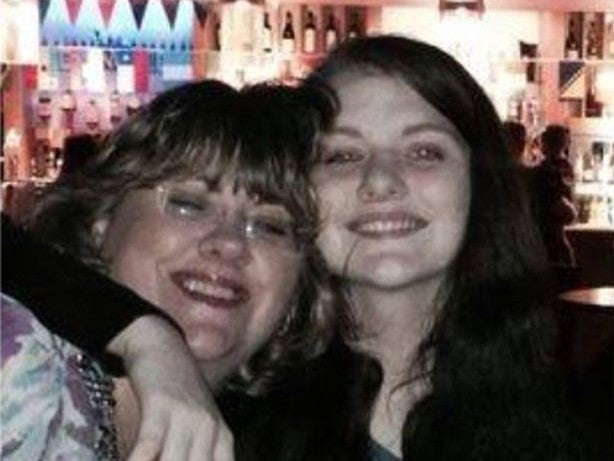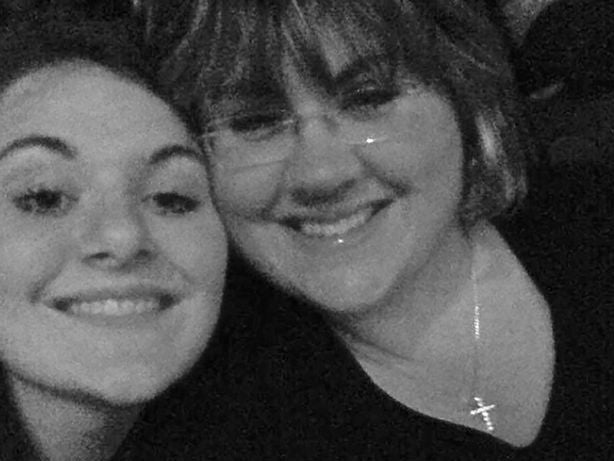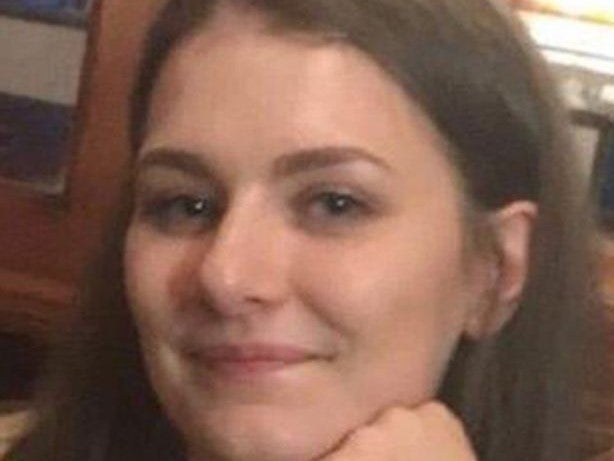‘Not normal behaviour’: How mother of murdered Libby Squire is aiming to end indecent exposure epidemic
Devastated mum talks daughter’s life, death and facing down her killer in court – as well about campaign to have low-level sexual offending taken more seriously

Your support helps us to tell the story
From reproductive rights to climate change to Big Tech, The Independent is on the ground when the story is developing. Whether it's investigating the financials of Elon Musk's pro-Trump PAC or producing our latest documentary, 'The A Word', which shines a light on the American women fighting for reproductive rights, we know how important it is to parse out the facts from the messaging.
At such a critical moment in US history, we need reporters on the ground. Your donation allows us to keep sending journalists to speak to both sides of the story.
The Independent is trusted by Americans across the entire political spectrum. And unlike many other quality news outlets, we choose not to lock Americans out of our reporting and analysis with paywalls. We believe quality journalism should be available to everyone, paid for by those who can afford it.
Your support makes all the difference.Every morning, while she’s still lying in bed, the first thing Lisa Squire does is reach for her phone to look at photos of her daughter Libby. Sometimes she listens to a voicemail the youngster left her. Later she will sit on her sofa with a cup of tea, switch on the TV and watch a 30-second clip of Libby laughing.
“And then she’s here with me again,” she says today. “I still have that bond with her.”
It is fast-approaching three years since the 21-year-old was raped and murdered following a night out in Hull where she was living as a student.
“I wish I could say time makes it easier but I don’t want to lie,” says Lisa, a maternity nurse from High Wycombe. “The longer I haven’t seen her, the more I yearn to. I’ve started getting physical pains in my left arm. I’m convinced it’s my body reacting to not being able to hug her.”
If the agony only grows with time, however, so, too, it seems, does Lisa’s determination that her daughter’s death will not be in vain.
This summer she launched a campaign to have so-called low-level sexual offending – flashing or voyeurism, for instance – treated with greater seriousness in UK law.
Now, she is speaking to The Independent following the conclusion of the Sarah Everard case last week because she believes there has never been a more apposite time for ending what she calls the UK’s epidemic of indecent exposure.
In both murders, the killers were known to have a long history of such deviancy. Pawel Relowicz – the 26-year-old butcher who snatched Libby – had repeatedly masturbated while looking through the bedroom windows of female students. Wayne Couzens – the police officer who raped and strangled Sarah – had exposed himself in McDonald’s just weeks earlier. Yet no alarm bells were ever apparently rung.
Lisa’s campaign – already supported by cross-party heavyweight MPs Dame Diana Johnson and Steve Barker– calls for such offenders to be tagged and treated in a bid to prevent their behaviour escalating.
“Flashing or masturbating on street corners – these are massive red flags,” says Lisa. “We know there are so many rapists and murderers who have started their offending this way. And yet, we kind of ignore it. We think of it as somehow quite comical, a dirty old man in a mac, seaside postcard stuff. Well, it isn’t comical. It’s deeply traumatising for the victims. And it is a warning that this man may be capable of something far worse. This is not normal behaviour. Normal people do not show their genitals like that.”
Lisa said all this to Priti Patel when she met her last month. The Home Secretary was understanding and empathetic and engaged. Then Lisa left and hasn’t heard back since. “Infuriating,” she says. “Women are being killed because of inaction.”

Libby herself – the eldest of Lisa and husband Russell’s four children – was thriving as a philosophy student at the University of Hull when her life was cut short. After suffering with mental health issues through her teens, she had told her mother that she was loving learning and excited by the future. “So many things she’ll never get to do,” says Lisa at one point.
She still remembers with numbing clarity receiving the phone call in which Libby’s friend told her she was missing: 1.08am, 1 February 2019, while she was working a night shift. “My stomach dropped,” she says. “It dropped and it’s never been properly back since.”
She still remembers, too, driving to Hull later that day. It was snowing and the motorways were clogged. The usual three-hour journey took them five. As they went over the vast Humber Bridge, she looked into the water and felt an overwhelming foreboding. “I said to Russell, ‘She’s in there’,” she says. “He said, ‘Don’t be daft’ but I’m her mum. I just knew. I felt awful for saying it but I knew.”
Libby’s body was found in the estuary seven weeks later.
Exactly what happened to her the night she was killed remains unknown because Relowic has refused to speak about it.
She was put in a taxi by friends shortly after being refused entry to the Welly nightclub. Although the driver dropped her at home, she never went inside. Instead, she wandered off through the streets.
By the time Relowicz – a father-of-two from Poland – came across her and bundled her into his car, experts say she would have been disorientated and suffering hypothermia. She was defenceless. He took her to a park where he raped her and threw her into the River Hull, either dying or already dead. The only thing Relowicz revealed in court was that, throughout the ordeal, she called out for her mum.
As the trial started in January, Lisa spent a day and a half looking at Relowicz. “He was supposed to be this big monster and he was just pathetic,” she says. “There was nothing about him. He was so insignificant and weak.”
He was given a life sentence with a minimum term of 27 years but Lisa still thinks it should have been more. “He’ll be my age by the time he gets out,” she says. “That’s not life.”

The Sarah Everard murder in March did not bring all the horror back to her because it never went away – but it made her realise how important it was that something had to be done to make the streets safer.
Has she been in touch with Sarah’s parents? Not yet but she will. “What we have been through is so similar,” she says. “I’ll just send them a letter saying that if they ever want to talk to someone who really knows what they have been through, I’m here, I’m happy to talk.”
Her own family, she says, still struggles. Russell cannot watch videos of Libby in the same way Lisa does; while sister Beth – who went to university herself this year – has spoken about her apprehension at turning 21 next Christmas. “She said she’s dreading it because she’ll be older than Libby was,” says Lisa. “I said, ‘No you won’t…she is always growing with us.’ But everyone deals with the grief differently. We all do what what we can to get through the days.”
For Lisa herself that now means doing everything possible to ensure her campaign is successful.
“If we can save just one person going through what Libby did,” she says, “that would be worth all the effort in the world.”
Join our commenting forum
Join thought-provoking conversations, follow other Independent readers and see their replies
Comments